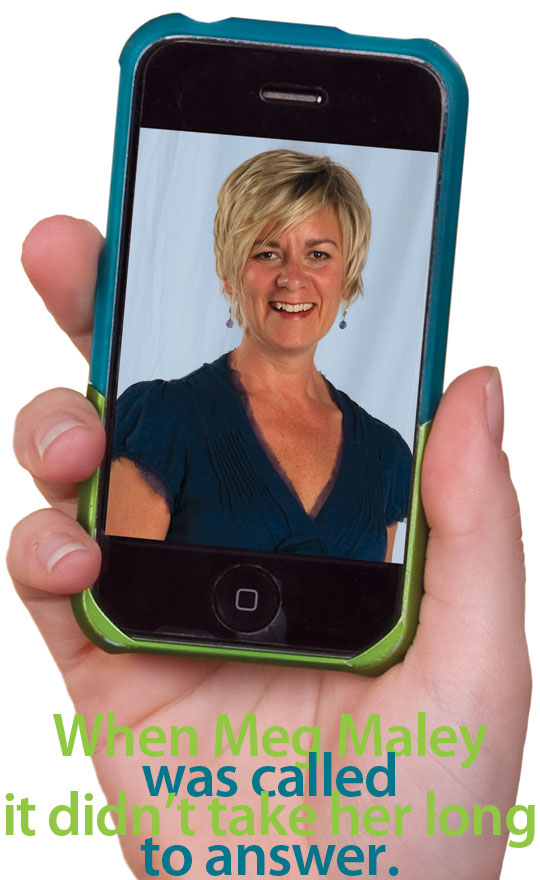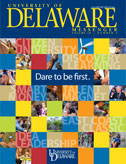
Creating a network of cancer care
ALUMNI | For Meg Maley, HS ’86, helping people suffering from cancer is anything but depressing. “Ever since I worked with my first cancer patient when I was a new nursing student, I knew that was what I wanted to do,” she says. “I’ve never felt drawn to anything else. I think cancer care is a calling.”
When Maley was called, it didn’t take her long to get started. She launched Oncology Care Home Health Specialists in 1989, just three years after earning her bachelor’s degree in nursing. “The business was born from the idea that cancer patients deserve to have a team of dedicated cancer professionals caring for them at home,” she says.
Maley structured her business like others providing home health care, but she says hers had one major difference: “Everyone who worked for us—from nurses and aides to therapists and social workers—was trained in cancer care.” She and her employees provided a wide range of services, including not only medical care but also bereavement counseling and referrals to community resources.
About 10 years into the project, Maley saw a need for a central resource for information, referrals and guidance.
“I was getting phone calls every day from people who weren’t our patients asking questions about issues like getting second opinions, choosing the right treatment and paying for care,” she says. “I learned that others working in organizations similar to mine were encountering the same problem—people needing information and not knowing where to turn.”
In 1998, Maley met Roxana Cannon Arsht, a local judge who was caring for her husband in late-stage cancer. Together, with the help of other community members, the two convened a group of Delaware leaders and cancer survivors to create Cancer Care Connection (CCC), based in Newark, Del.
“The nonprofit organization provides an unbiased, safe place for people to go for information based on a social work model,” Maley says. “The idea behind it is that the people at CCC not only answer your questions but also listen for the concerns behind the questions.
“Judge Arsht knew about the fragmentation of the system. It’s a universal phenomenon; she was a woman of means and education and still had difficulty getting what she needed. CCC filters through the available information and provides each client with a few meaningful sources of help. The people working there are an incredibly caring group, and the organization continues to grow and thrive, as there is a real need for it.”
Maley continued to run her own home care business until 2005, when she sold it to a national company but retained the intellectual property. She now helps train providers across the country to deliver in-home cancer care.
Oncology Care was recently acquired by WellDoc, a Baltimore company that uses the cell phone as a platform for interactive health-care software. Founded by an endocrinologist who wanted to improve the level of care for her diabetes patients, WellDoc has since expanded to include other chronic diseases. Maley’s team is now providing the content for a cancer care solution.
“The program links the patient, family members and doctors,” Maley says. “It delivers education, tracks appointments and checks on the patient’s status. All of the data is tailored to the individual patient.”
She calls her involvement in this latest venture “quite a journey for me, going from high-touch bedside care in the home to high-tech care using a cell phone. But, while it might seem impersonal, it’s still a relationship built on principles of motivational psychology. Humans are keeping an eye on the patient in a way that would be prohibitively expensive if it was done in person. The high-tech enhances the touch.”





